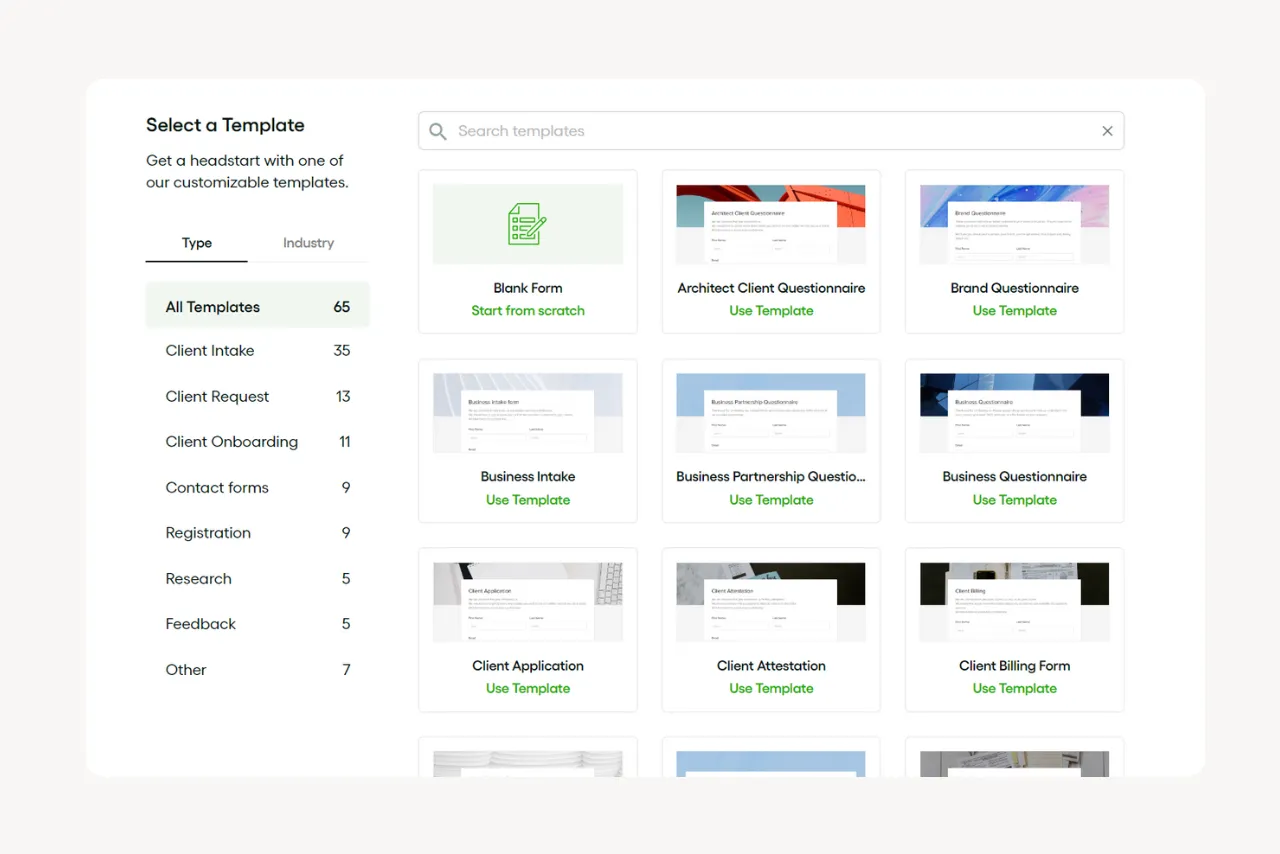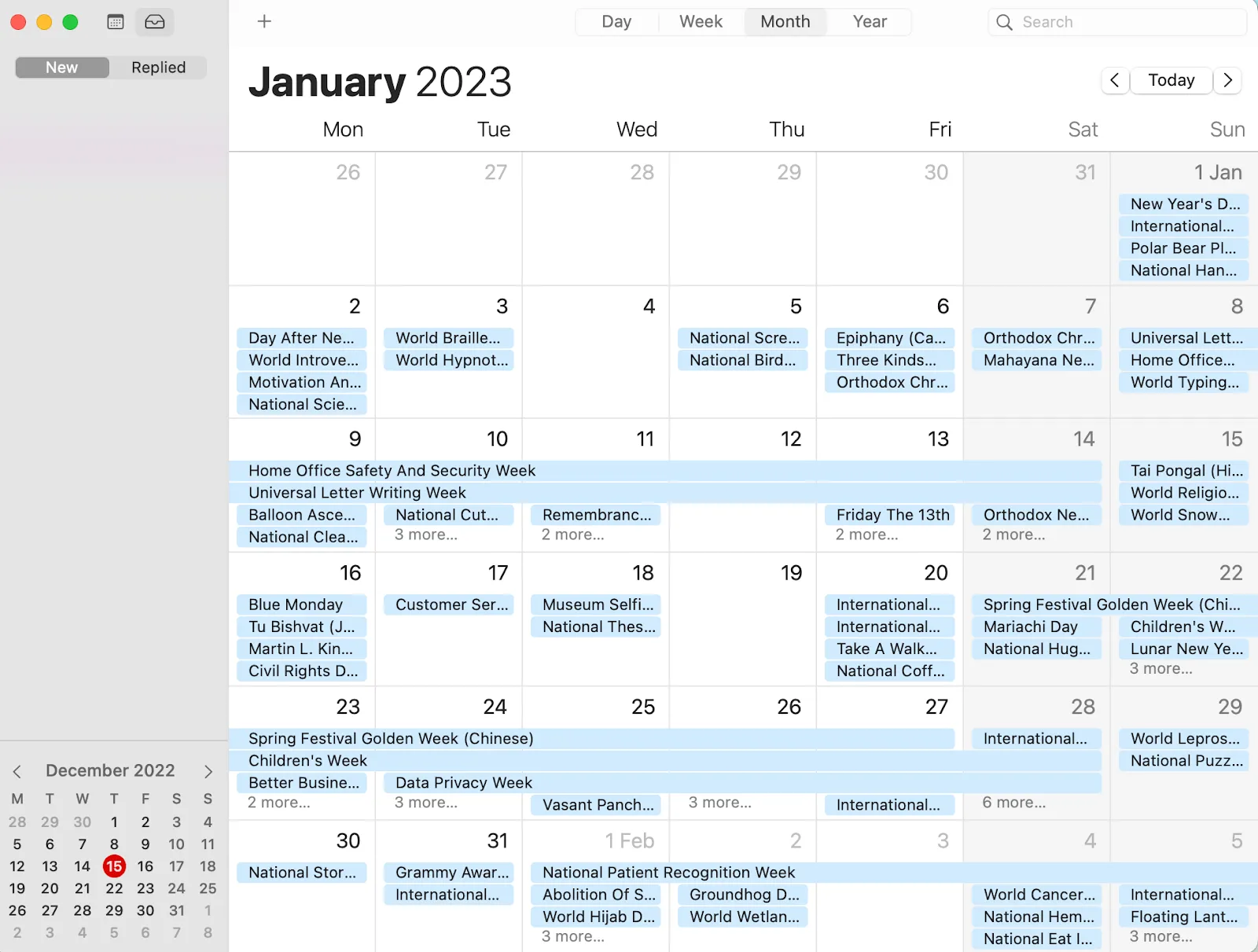Kickstarting a successful marketing calendar means setting clear goals and nailing down those crucial dates. Top-notch marketing software is your best pal here, helping your marketing squad line everything up.
Once you've got those dates, brainstorm marketing strategies and weave them into your master marketing plan. Templates? They're game changers. They make sure you don't miss any big deadlines or events. This strategic planning keeps all your marketing channels in sync, making sure your entire campaign runs like a well-oiled machine.
Understanding the importance of a marketing calendar
A marketing calendar isn't just useful; it's essential. It lays out all your strategic marketing plans, keeping your team on track and your deadlines met. Think of it as your campaign's roadmap, showing you what's up next. For any marketing department, it's a lifeline, making sure every event is on point. Managed through smart marketing software, it simplifies tracking all your channels and hitting those marketing targets.

Why every agency needs a marketing calendar
Listen up, every marketing team needs a calendar. Why? It ties all your marketing activities together, forms the backbone of your strategy, and smooths out the execution. By plotting all your campaigns, deadlines, and events on one calendar, you streamline everything. It keeps your team focused, tracks progress, and lets your marketing manager tweak things as needed, ensuring you're always on top of your game.
Benefits of using a marketing calendar
Deploying a marketing calendar boosts your strategy's impact big time. It's all about scheduling, planning, and keeping an eye on all marketing activities, ensuring your team is always in sync with the plan. The perks? It rallies your department around shared goals, boosts visibility across channels, and keeps tabs on all your campaigns. Plus, with savvy marketing software and templates, your managers get to steer the ship more smoothly, making planning a breeze.
How to use the Bonsai template effectively
Using Bonsai templates can significantly enhance your workflow and simplify your tasks. Start by determining the type of document you need. With over 500 templates available, Bonsai has you covered whether you require a contract, brief, proposal, or invoice.
After selecting the appropriate template, personalize it to suit your specific requirements. These templates are highly adaptable, allowing you to modify the content, format, and design to align with your brand and industry standards.

Additionally, Bonsai provides industry-specific templates, ensuring that the language and structure are already customized for your field, which helps your documents appear more professional and relevant.
Be sure to use the built-in features such as e-signatures, automated reminders, and task tracking. These tools can enhance your document management and help you stay on top of deadlines. Collaboration is also seamless with Bonsai. You can share templates with your team and work together to finalize documents, improving accuracy and ensuring all necessary contributions are included. This approach keeps everyone aligned.

Regularly updating your templates with the latest information and industry standards is essential. This practice keeps your documents current and compliant with any new regulations or best practices. Finally, take advantage of Bonsai’s performance tracking features to assess the effectiveness of your documents. This can help you pinpoint areas for improvement and make informed decisions to enhance your processes.
By implementing these strategies, you’ll be able to leverage Bonsai templates to produce professional, accurate, and efficient documents that fulfill your business requirements. It’s all about maximizing the tools at your disposal and maintaining organization and efficiency.
Key elements of a successful marketing calendar
Crafting a killer marketing calendar requires pinpoint planning and sharp execution. You'll need:
- A solid marketing plan that lines up your activities with your strategy.
- A dedicated team ready to roll, led by a savvy marketing manager.
- Smart marketing software to keep tabs on your schedule, track deadlines, and measure progress. This setup not only keeps your events and campaigns streamlined but also maximizes your use of various marketing channels.
Setting clear marketing goals
Setting crystal-clear marketing goals is critical. They align your team and streamline your strategy, leading to more effective campaigns. Each goal should tie back to your department's broader objectives. Your marketing manager needs to think about intended channels, schedules, and specific events when setting these goals. Then, integrating these goals into your marketing plan and using software or templates helps you track progress and meet deadlines.
Identifying key dates and events
In any sharp marketing department, the team follows a comprehensive plan to drive their activities. Key strategy events might include crafting the schedule, setting goals, and choosing channels, with your marketing manager leading the charge. Key moments like planning sessions, setting deadlines, and using software and templates all come together to create successful campaigns that align with your company's overall goals.
Planning for different marketing channels
When planning, your marketing department should consider various channels. Your comprehensive plan should detail specific activities for each chosen platform, guided by your team's overall strategy.
Keep these in mind:
- Use marketing software to track and optimize your efforts.
- Stick to a marketing schedule to keep up with deadlines.
- Continuously adjust your campaign to hit those marketing goals, ensuring you're always moving towards your targets.
How to create a marketing calendar
Creating a marketing calendar starts with setting your marketing goals and aligning activities with these goals. The calendar should clearly outline your plan, including when and where campaigns will launch, the channels to be used, and the team responsible for each task. This is crucial in the planning process.
Marketing software can help create visually appealing templates for your calendar. Always include key events and deadlines to keep your department on track. A good marketing calendar is essential for every manager.
Step-by-step guide to building your marketing calendar
Start by identifying your goals, listing all activities, and planning the schedule accordingly. Use templates to organize dates, deadlines, and keep track of multiple channels.
Ensure the team aligns on all planned strategies and campaigns, and use software for efficient coordination. Regular monitoring and modification based on market trends are essential.
A structured calendar aids in systematic planning and provides a comprehensive overview of all initiatives, proving vital for a successful strategy.
Choosing the right format: Digital vs. physical calendars
Choosing between digital or physical calendars depends on your team’s preferences and work style. Digital formats offer accessibility and easy integration with top business software systems, making it easy to align activities with your plan. They are ideal for collaborating on events and tracking deadlines.
However, some prefer traditional physical calendars. They are easily visible and offer a tangible way to mark progress towards goals. They are particularly useful in a department where everyone can view the schedule.
Whichever you choose, ensure it aligns with your strategy and aids in effective planning.

Top marketing calendar templates and tools
Effectively streamlining activities and achieving goals demands an organized plan and strategy. A marketing calendar is crucial for the team, assisting in planning and scheduling events, campaigns, and deadlines.
Templates provide a detailed overview of channels, strategies, and schedules, contributing to the effective operation of the department. Whether you are a manager or part of the team, using software that provides such templates can significantly enhance performance.
Advantage of Bonsai tool for marketing calendars
Bonsai is a powerful tool for managing marketing calendars. It brings everything together, allowing you to manage all your scheduling and deadlines in one place, which simplifies the process significantly. The collaboration features are excellent, enabling your team to work together effortlessly on content creation and approvals. This enhances productivity and ensures everyone is aligned.

Additionally, Bonsai provides customizable templates that you can modify to suit your specific requirements, saving you a considerable amount of time. The performance tracking tools are incredibly useful as well, allowing you to monitor the effectiveness of your marketing efforts and make informed decisions.
With automated reminders and task tracking, you’ll stay on top of everything. Bonsai truly helps maintain an organized and efficient marketing calendar.
Using Google Calendar for marketing planning
Google Calendar is an efficient tool for planning. It allows the team to schedule, track, and manage activities. Managers can use it to set goals, plan campaigns, and monitor deadlines. It offers templates to aid in crafting a comprehensive plan and strategy.
Google Calendar also facilitates coordination by sharing important events and allowing visibility of each other’s schedules. Keeping track of different channels used in a campaign becomes much more effortless.
Exploring the features of CoSchedule’s marketing calendar
CoSchedule’s Marketing Calendar presents a comprehensive platform for all activities. It enables the team to design and implement a cohesive plan by providing an accessible overview of ongoing and upcoming campaigns. This software assists in prioritizing tasks, setting deadlines, and tracking progress towards goals.
Its features include templates for ease of planning, a smart schedule facilitating collaboration, and clear visibility of channels. This offers managers an effective tool to control and coordinate strategy, events, and deadlines.
Benefits of using Trello for marketing calendars
Trello is essential for managing activities, especially for any department. It promotes organization and tracking of all tasks involved in a plan, keeping the entire team on the same page. Trello also permits the creation of templates, expediting planning processes and ensuring consistency.
Moreover, Trello helps in scheduling and tracking deadlines, ensuring timely execution of campaigns. It simplifies mapping out channels for a particular campaign.
Ultimately, using Trello as software facilitates the achievement of goals, making it invaluable for any manager.
Best practices for managing your marketing calendar
Getting a grip on your marketing calendar can seriously oil the gears of your marketing machine, helping your team hit goals with finesse. Start smart by sketching out your marketing plan—pin down your goals and the game plan to nail them. Boost productivity and keep communication slick with marketing software that pings reminders for key dates and events, and templates that keep your presentations sharp.

Up next, your marketing maestro should keep the schedule fresh and accurate. That means tweaking timelines for different channels and keeping the team in the loop with quick updates. Regular check-ins to gauge campaign progress and tweak tactics are also must-dos.
Maintaining flexibility in your calendar
Flexibility in your marketing schedule is crucial for dodging curveballs and seizing spur-of-the-moment opportunities. How to stay limber? Set deadlines with wiggle room, involve your team for a broad range of ideas, and use software that makes rescheduling a breeze. This way, your department can pivot fast and keep your campaigns firing on all cylinders.
Regularly reviewing and updating your calendar
Keep your marketing strategy fresh and on point by regularly revisiting your calendar. This is key to keeping your activities timely and relevant. A robust marketing software will be your best buddy here, making it easy to shuffle deadlines, plan events, and pick the right channels. Regular updates not only keep you ahead of the curve but also ready to adapt on the fly with handy templates for quick changes.





